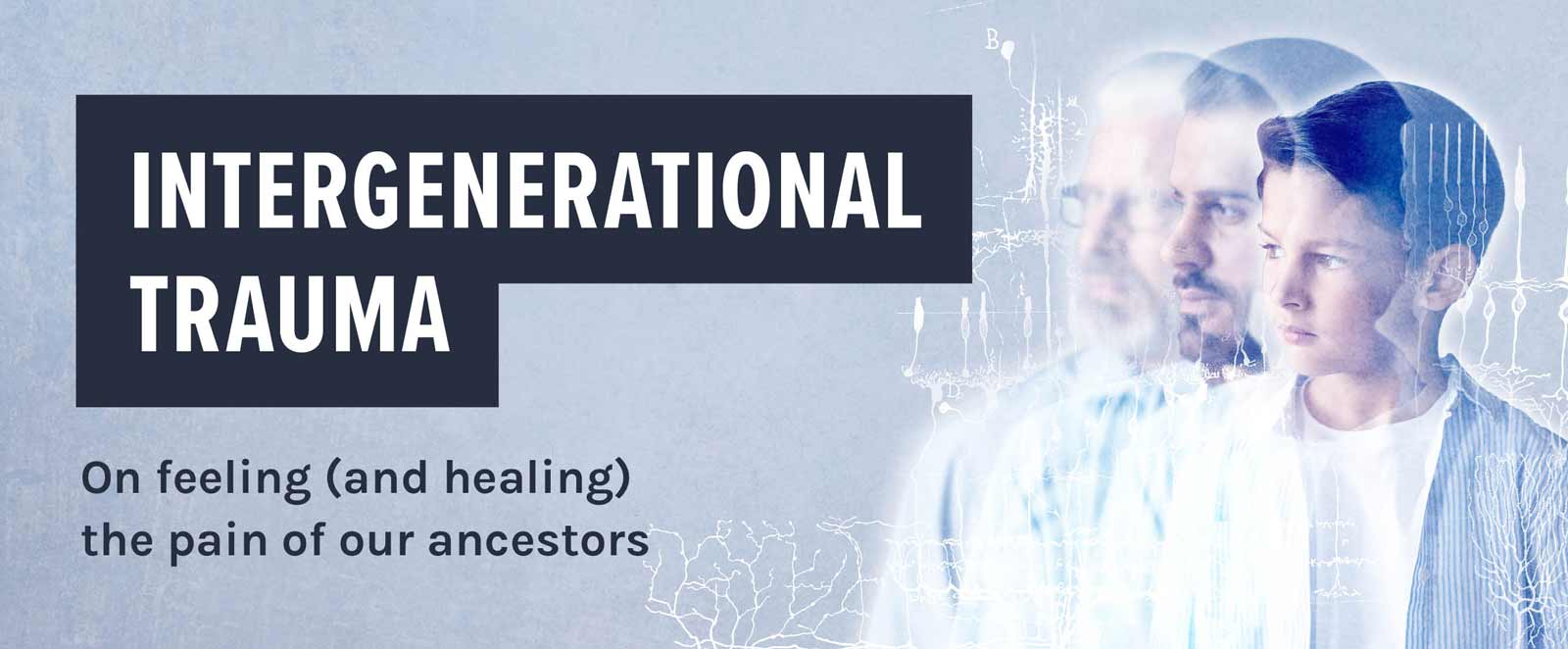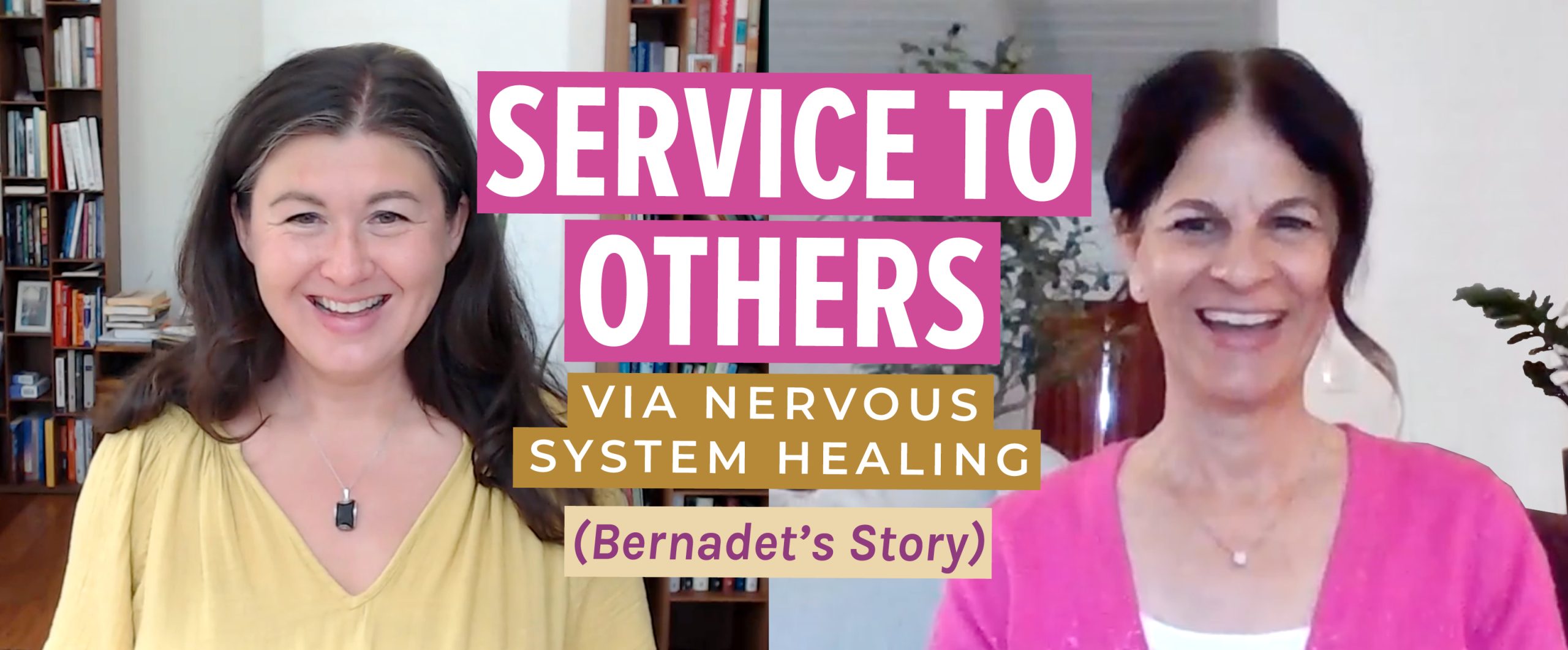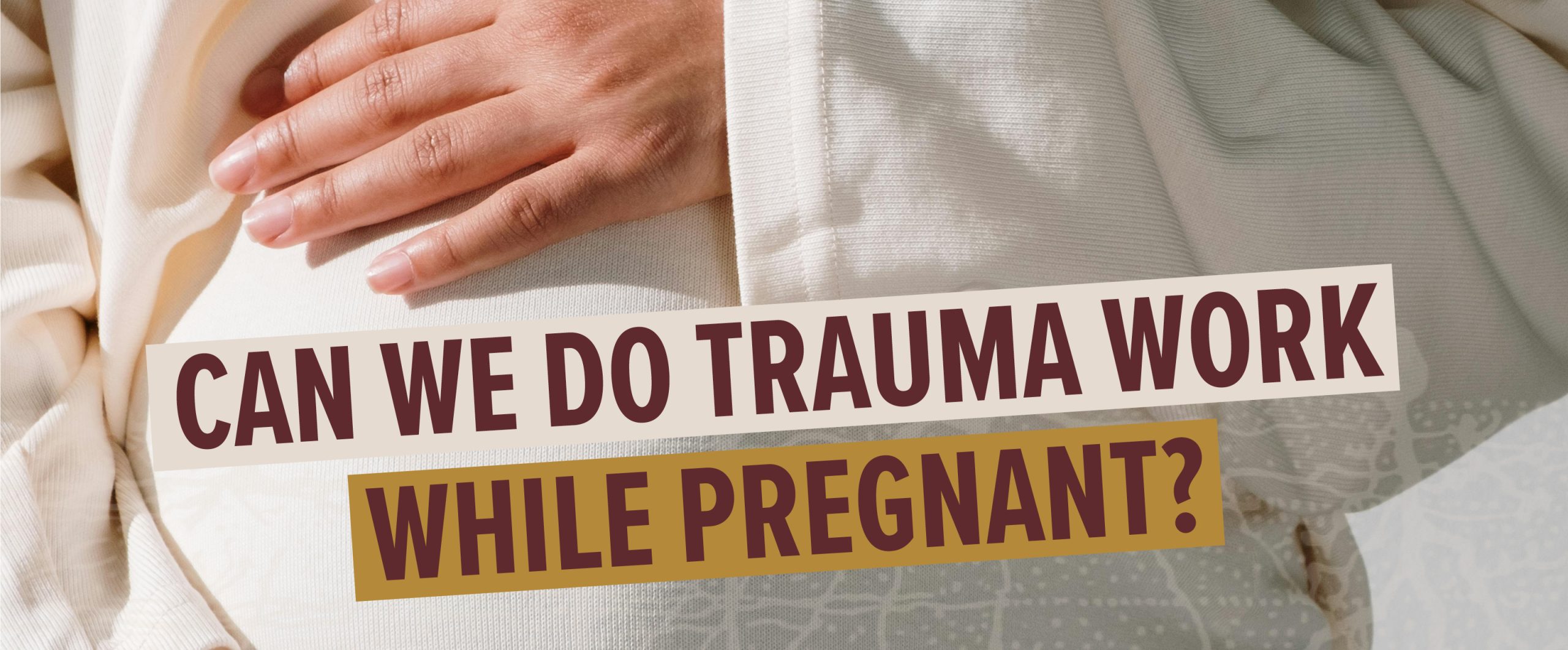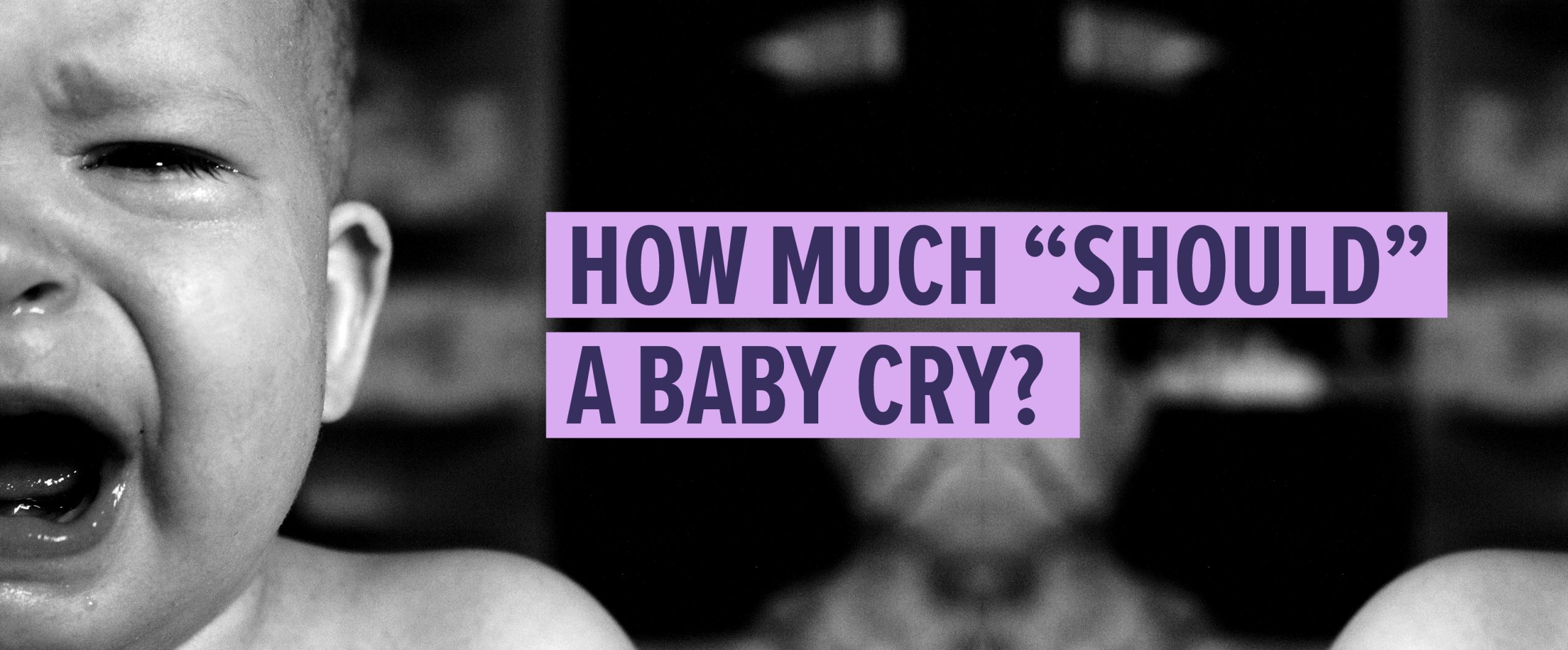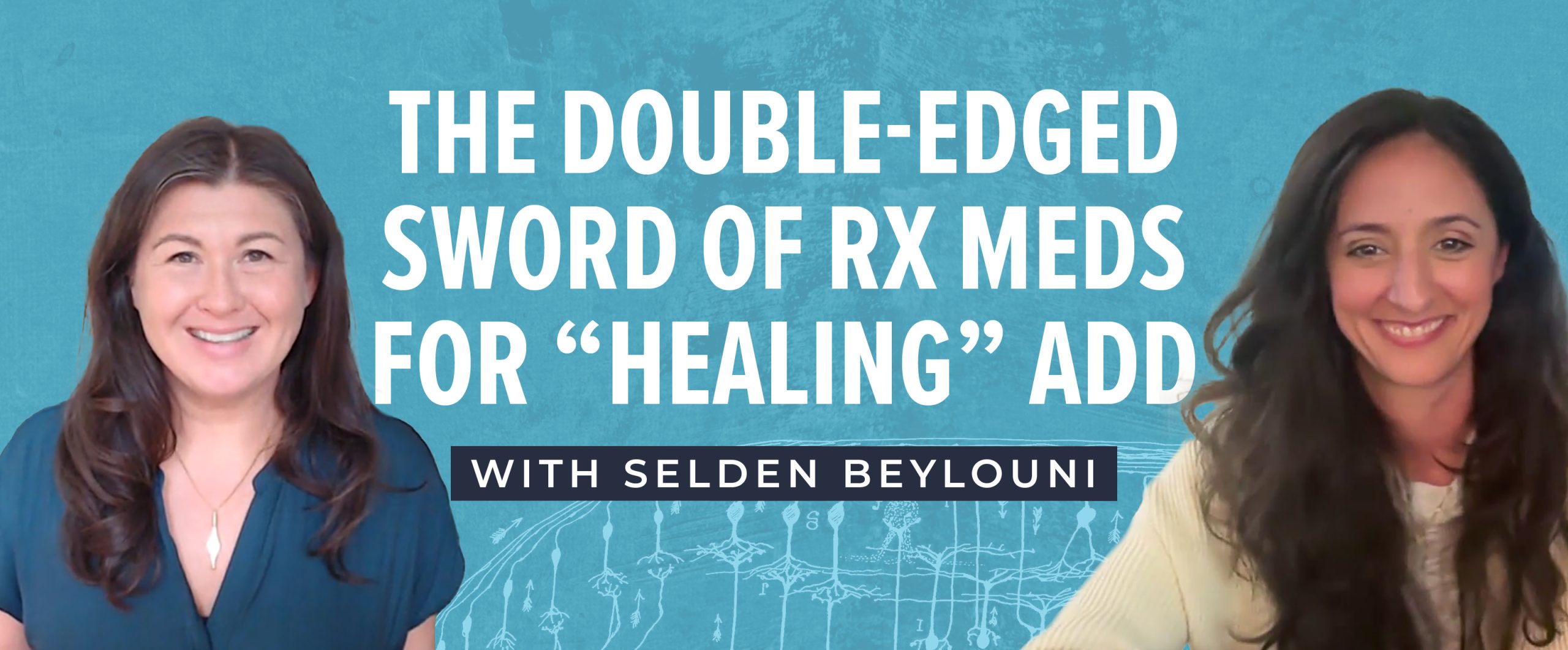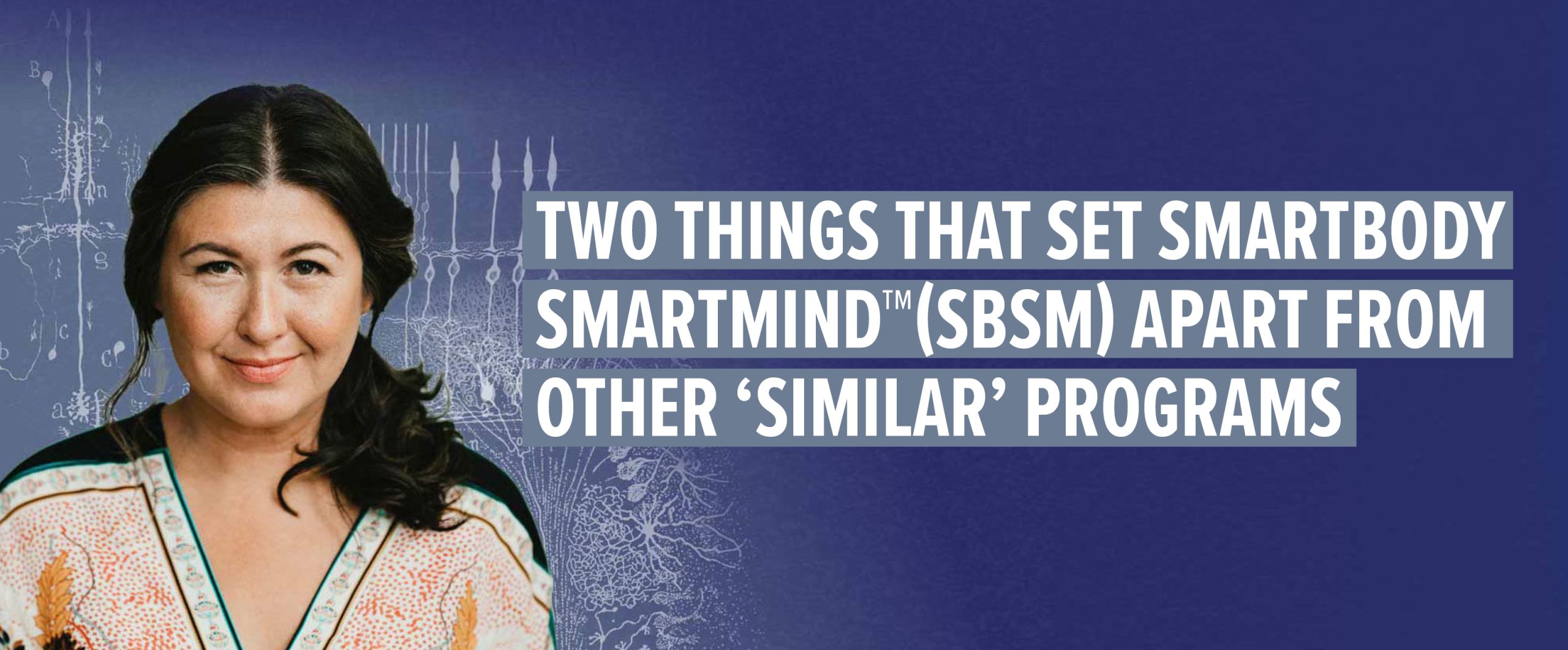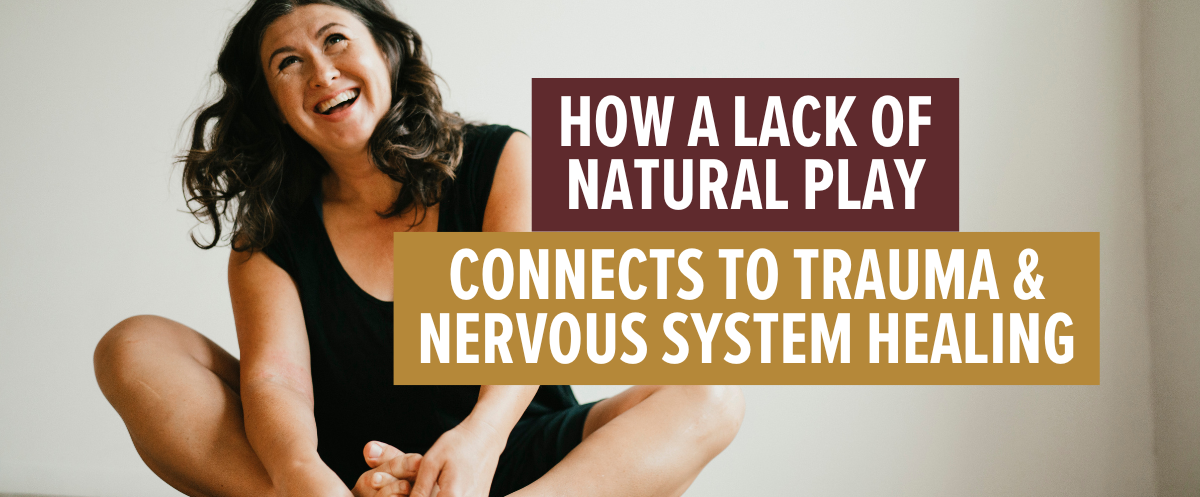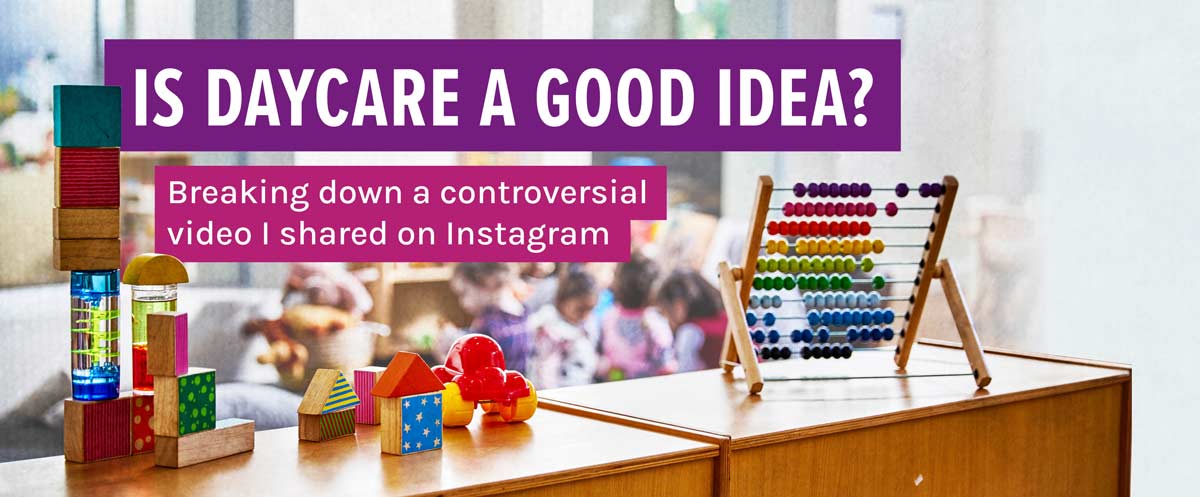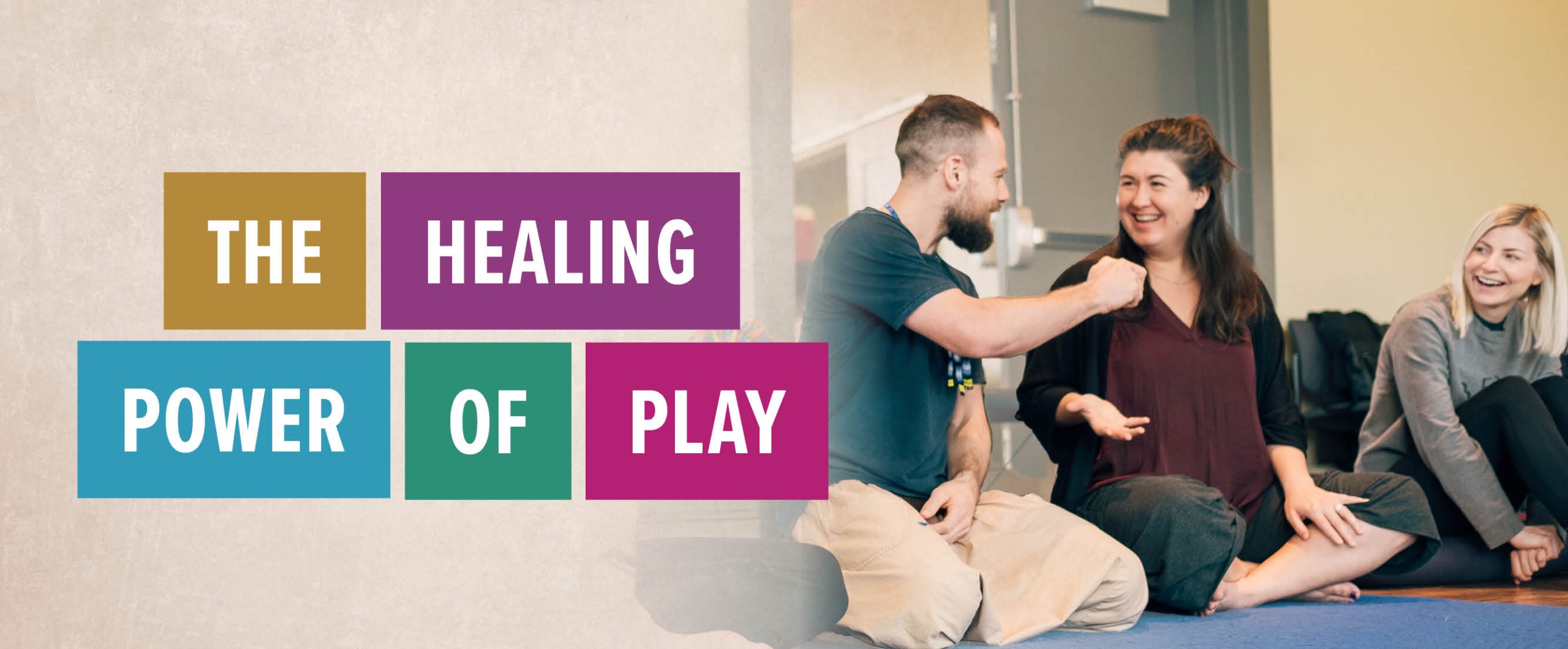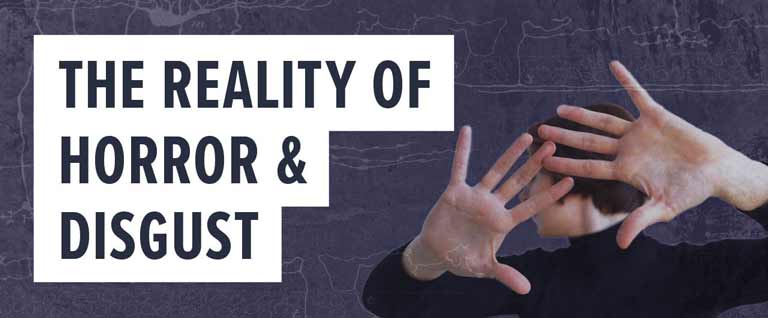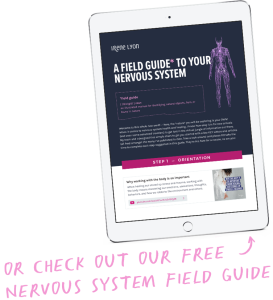“Pain travels through families until someone is ready to feel it.” – Stephi Wagner
Intergenerational trauma is trauma that’s been passed down through generations; also known as generational, transgenerational, or ancestral trauma.
This is never a fun one to write about, but it is true that we ‘keep’ and express the trauma of our ancestors if we do not consciously and actively work to heal it from a nervous system and neurobiological level – a fact borne out by all research to date on the epigenetics of trauma:
To cite just one example, “A study published in 2016 found that Holocaust survivors and their children were more likely to have changes in their FKBP5 gene than others. FKBP5 is a stress gene that links to anxiety, depression, and PTSD.” [1.]
This is something to pay attention to if you actually know you didn’t experience any of the other common human experiences that can be traumatic (but are often seen as not).
If life has been pretty darn good to you, but you are still someone who experiences anxiety, gets overwhelmed easily, and/or you are riddled with health troubles, know this:
Our bodies are INTELLIGENT.
They’re always protecting us.
Even when it might seem that they are working against us.
So, when we experience trauma-related symptoms that truly don’t make sense in the context of our personal history, it may be a sign that we’ve INHERITED these survival stress responses.
If we land on this as our reality and we realize we are carrying the genetic imprints of war, famine, and inconceivable hardships from our ancestors then, my friends, it is up to each one of us to take this information in, feel it, grieve some for those who didn’t have the knowledge we have now to heal at this deep nervous system level, and do the healing that is necessary to stop the cycles of survival stress and trauma from repeating themselves.
Of course, it’s not easy to break free from the conditioning and, to some extent, biological programming that comes with intergenerational trauma…
“Why me?!” is a question that naturally comes to mind. But consider this:
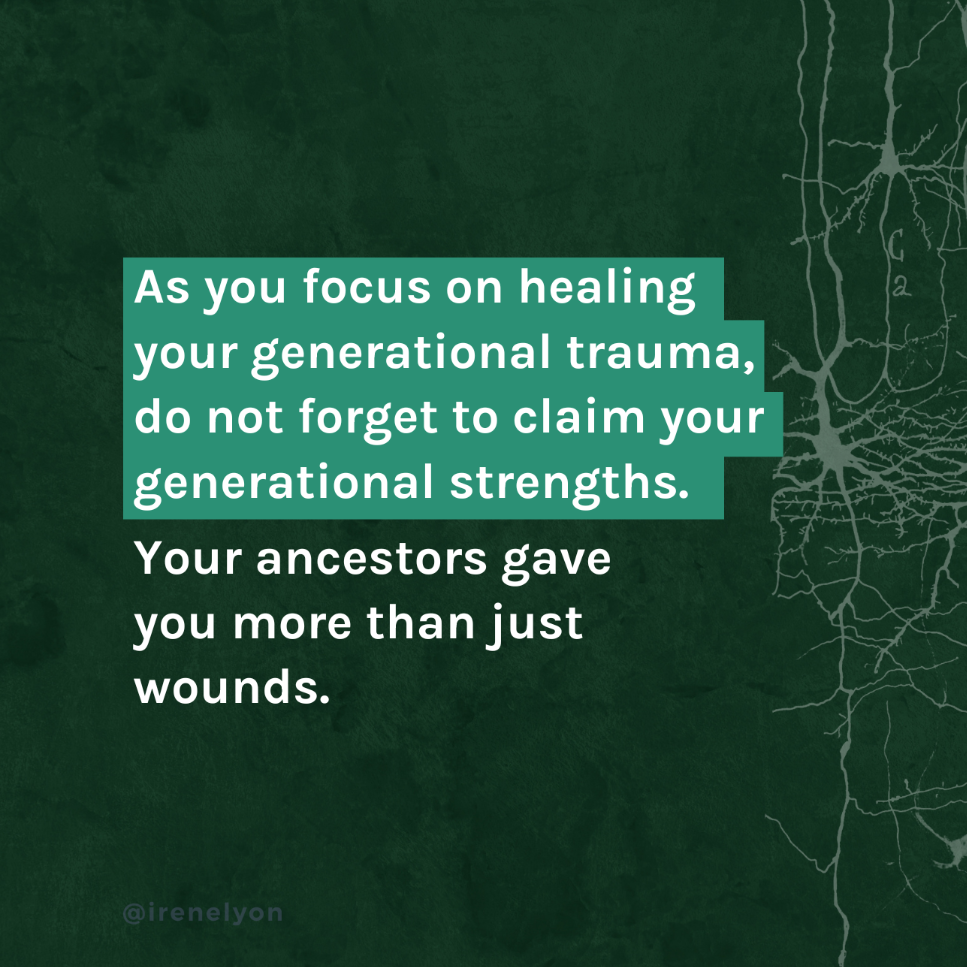
Again, the research bears this out! In reference to the same example cited above:
“The observation that the changes in parent and child are in opposing directions [of methylation] suggests that children of traumatized parents are not simply born with a PTSD-like biology. [The children] may inherit traits that promote resilience as well as vulnerability.” – Dr. John Krystal [2.]
It’s one of those glass half empty or glass half full kind of things.
While it might seem unfair that we should be burdened by stuff that we didn’t have any control over, nor signed up for, it was probably the same for your ancestors as well.
This is where the concept of ‘taking one for the team’ comes in pretty handy.
Not being flippant here; it’s just a fact.
When it comes to healing trauma, rather than “Why me?!” it really is more a question of: “If not me, then whom? And if not now, then when?”
Not to mention, it’s incredibly empowering to be the one in your lineage who stands up and says, “NO MORE!”
Remember folks—we need to FEEL to heal. If you want some help with what to know and where to start, here are a few options:
1.) Explore our ‘New Here’ page if you haven’t already. This page will set you up with:
- The answer to the most urgent question for most people (Will this heal my…?)
- Two important reminders if you’re just beginning to contemplate doing this work
- Irene’s 3 Laws of Nervous System Health & Healing
2.) Download ‘Irene Lyon’s Nervous System Starter Kit’ for an all-in-one, curated collection of our stellar FREE resources (includes Healing Trauma, the 3-part video series that many of our alumni still credit with some of their biggest ‘A-ha’ moments).
3.) Learn how your nervous system works and begin working directly with it to release stored survival stress and build somatic capacity in the self-paced and supportive environment of our online starter program, 21 Day Nervous System Tune-Up.
For further resources and discussions around intergenerational trauma:
1.) Take a few minutes to watch Kathy Kain, a key mentor and leader in the healing of early developmental trauma (EDT), talk about intergenerational trauma. Just click here and this link will take you to the point in her interview on our YouTube channel where she speaks about this.
2.) Meet Keiti from Estonia, who took a deep dive into her nervous system healing journey when she was diagnosed with cancer (which she healed naturally!). What she shares is a remarkable story of healing intergenerational trauma, allowing the body (and its emotions) to lead the way, while also finding her own authentic path via the language of the nervous system: https://www.youtube.com/watch?v=edSSSekEviI
3.) In this Q&A w/Irene session, we really got into the discussion around the influence of generational and cultural trauma that is passed down to us as kiddos, plus the overall theme of listening to our bodies and following those impulses: https://youtu.be/Kokhz2nsir4?si=bPUPKspoeRixJUq3
If you have started doing the work to restore regulation to your nervous system, know that you are on the RIGHT side of history.
There really is nothing more important, at this point in time, both for ourselves and for future generations, than to take INDIVIDUAL responsibility for our healing.
And if you haven’t yet started, know that just being here, reading this is A BIG STEP in the right direction. Keep going. Keep learning…
And please: don’t let your ‘glass half empty’ side stop you from feeling and healing. That would be A GREAT TRAGEDY.

